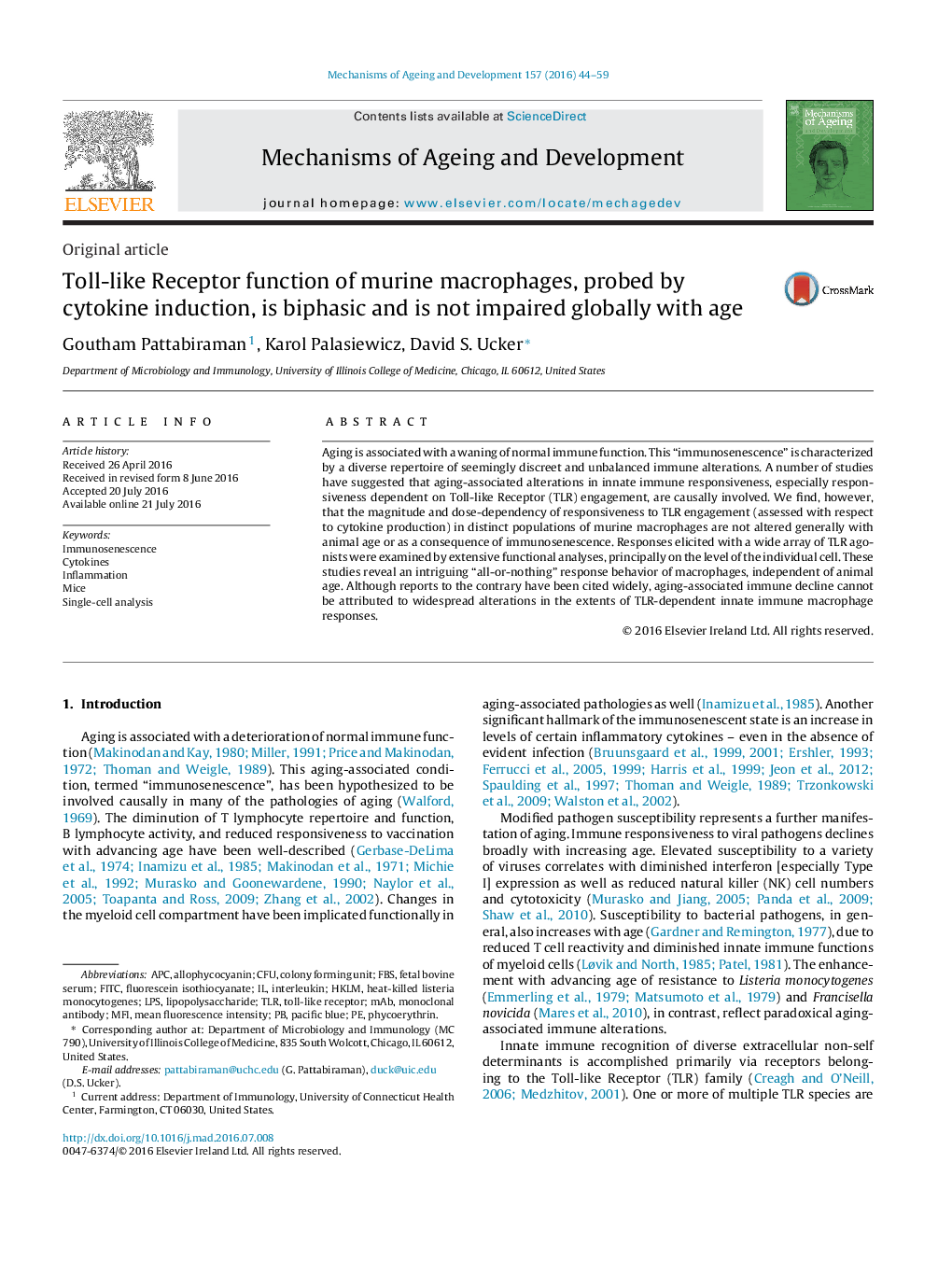| Article ID | Journal | Published Year | Pages | File Type |
|---|---|---|---|---|
| 1919167 | Mechanisms of Ageing and Development | 2016 | 16 Pages |
•Immunosenescence reflects the dysregulation of diverse immune activities.•Macrophages have been implicated, but the role of TLR alterations is contentious.•We find no global alterations of intrinsic macrophage TLR responsiveness with age.•Macrophages exhibit an intriguing, aging-independent, binary response behavior.•Widespread TLR alterations do not account for immunosenescent inflammatory status.
Aging is associated with a waning of normal immune function. This “immunosenescence” is characterized by a diverse repertoire of seemingly discreet and unbalanced immune alterations. A number of studies have suggested that aging-associated alterations in innate immune responsiveness, especially responsiveness dependent on Toll-like Receptor (TLR) engagement, are causally involved. We find, however, that the magnitude and dose-dependency of responsiveness to TLR engagement (assessed with respect to cytokine production) in distinct populations of murine macrophages are not altered generally with animal age or as a consequence of immunosenescence. Responses elicited with a wide array of TLR agonists were examined by extensive functional analyses, principally on the level of the individual cell. These studies reveal an intriguing “all-or-nothing” response behavior of macrophages, independent of animal age. Although reports to the contrary have been cited widely, aging-associated immune decline cannot be attributed to widespread alterations in the extents of TLR-dependent innate immune macrophage responses.
